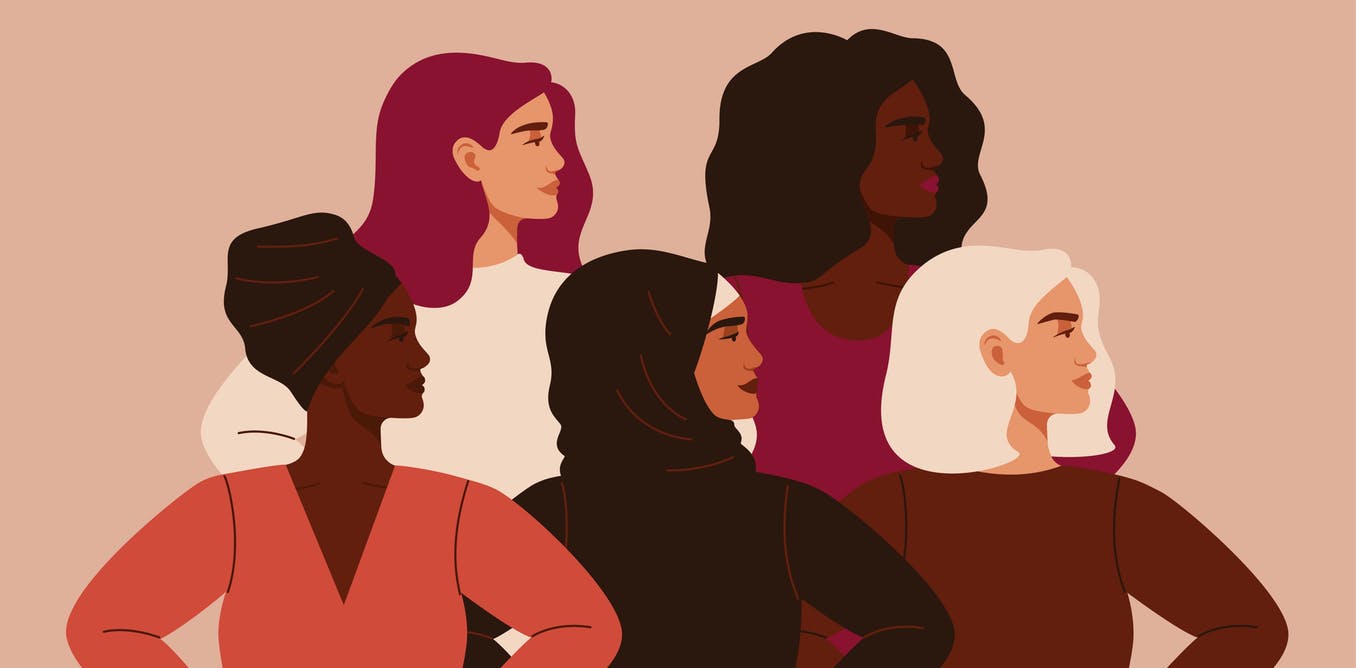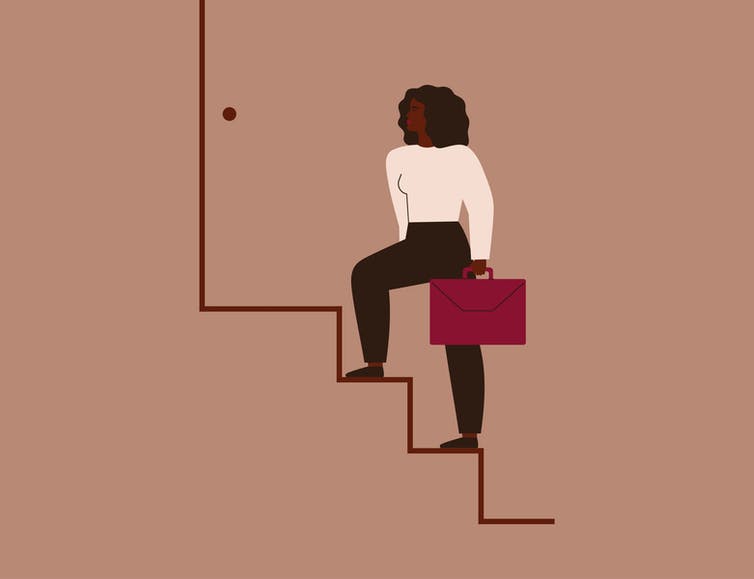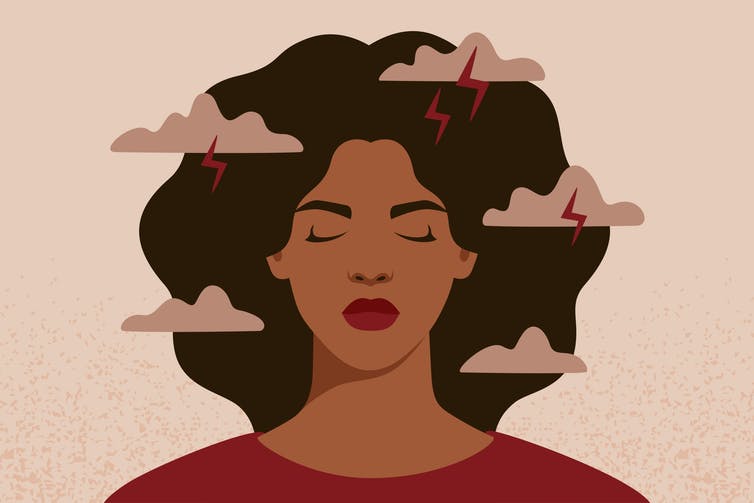Confidence culture tells women to be more self-assured – but ignores the real problems

Mary Long/Shutterstock
With Valentine’s Day around the corner, advice about confidence is proliferating. British Vogue enjoins women to boost their sexual confidence with slogans like “feel good in your body” and say goodbye to negative talk. Meanwhile Selfridges promises shoppers a sex and relationship “MOT”, in which “confidence coaching” for women comes as part of the package.
But (like dogs and Christmas), confidence is not just for Valentine’s Day. It is now a 24/7 obligation for women.
Inequality in the workplace? Women need to lean in and become more confident. Eating disorders and poor body image? Programmes promoting girls’ confidence and body positivity are the solution. Parenting problems? Let’s help make mums feel more confident so they can raise confident kids. Post-pandemic relationship sours? Well, confidence is, after all, “the new sexy”. Even the British Army now targets potential female recruits with the promise that joining the military will give young women confidence that “lasts a lifetime”.
The need for self-confidence has become so much a part of our common sense that it is presented as beyond debate. Cast as a feminist intervention, and aimed at the obvious good of empowering women, who could possibly be against it?
But, as we argue in our new book, the problem with these imperatives, programmes and interventions – what we call Confidence Culture – is that they encourage us to undertake extensive work on the self and direct us away from calling out structural inequalities that are the real source of the problems women face.
A personal deficit?
Self-confidence is presented as the solution to a wide range of issues across many spheres of life: from the welfare system to consumer culture, body image, the workplace, parenting, education and sex and relationship advice. Rather than identifying the root causes of structural inequality, confidence culture reframes social injustices in terms of internal obstacles and personal deficits through, for example, familiar phrases such as “Your lack of confidence is holding you back,” or “We do this to ourselves.”

The toxic idea that if women were more confident they could be more successful is pervasive.
Mary Long/Shutterstock
Take the pandemic’s devastating and disproportionate economic impact on women —including increased unemployment, the scaling back of paid work, and the widening gender pay gap. In response, workplace schemes have offered “confidence training” courses and advice for women, while organisations, life coaches and lifestyle media implore women to believe in themselves, “fill your own cup first” and “remember that confidence is a work in progress”.
Thus, instead of holding government, workplaces, corporations and the education system to account, confidence culture — even if well-meaning — calls on women to work on themselves in order to tackle their impostor syndrome, change the way they think, feel, communicate, hold their bodies and occupy space.
Changing the world, not the woman
Confidence culture directs us ever more inward, shifting the responsibility and the blame for social ills onto the shoulders of individual women.
Moreover, with the exponential rise in stress and mental health issues — all profoundly exacerbated by years of austerity and now the pandemic — confidence and self-care apps, targeting women, have boomed. Several reports identified the growth of self-care apps as one of the biggest health and consumer trends of the pandemic, driven largely by women and millennials.

Confidence culture tells women that they could love themselves more or be more successful if only they change themselves.
Mary Long/Shutterstock
In the area of body image, most experts agree that pressures on women are intensifying. Yet rather than critically addressing these punitive and unrealistic ideals, beauty brands are hiring “confidence ambassadors” and female celebrities are advocating body positivity and self-love. From “woke advertising” to hashtags across social media and more, inspirational mantras and positive affirmations addressing girls and women relentlessly promote self-belief and positivity.
We urgently need to shift this emphasis and tackle the structural inequalities that the pandemic has so clearly spotlighted and that the cost-of-living crisis is now highlighting so brutally. We need to challenge the endless encouragement of women and girls to work on and care for themselves (because no one else will). Rather than an individualised and psychologised confidence culture, we need to invest in building and sustaining social structures and policies that support, ensure and reinforce women’s safety, well-being and power.
We don’t need more emphasis on blaming and changing women, we need to change the world.

The authors do not work for, consult, own shares in or receive funding from any company or organisation that would benefit from this article, and have disclosed no relevant affiliations beyond their academic appointment.






